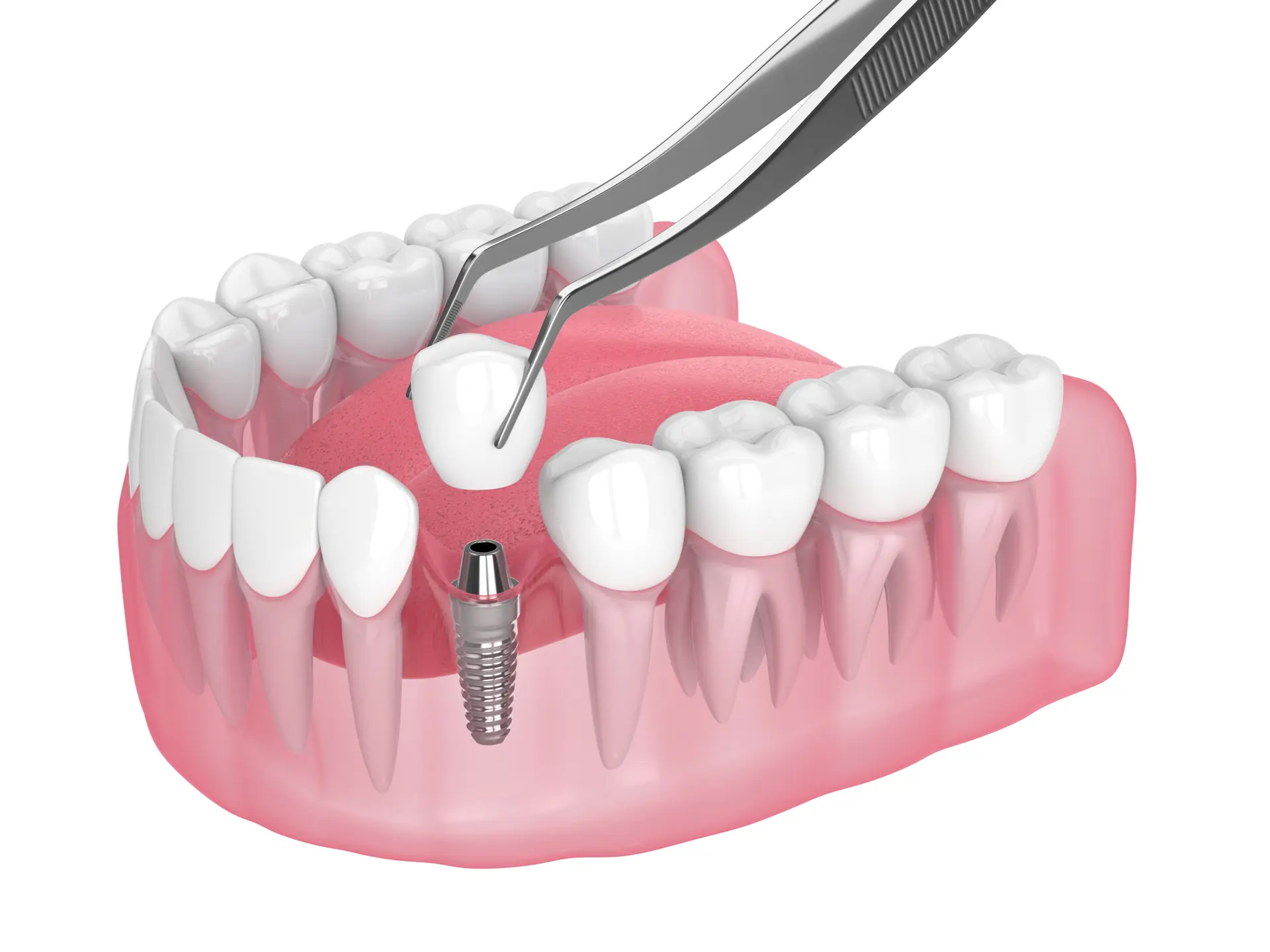Dental implant surgery can be life-changing, offering a permanent solution to missing teeth. However, the process involves several stages, and it’s natural to have concerns about what to expect before, during, and after the procedure. Here, we’ll walk you through the essential steps, provide insight into recovery, dietary restrictions, and the potential risks associated with dental implant surgery.
What Are The Steps Involved In Dental Implant Surgery?
Typically, dental implant surgery is carried out in phases. These stages ensure that the implant integrates properly with your jawbone and provides a strong foundation for the replacement tooth. Here’s what you can expect:
- Initial Consultation: Your dentist will evaluate your oral health to determine if you’re a good candidate for dental implants. This may involve X-rays or 3D scans to assess your bone density and overall jaw structure. During this phase, you’ll discuss your medical history, the desired outcome, and any concerns.
- Tooth Extraction (if necessary): If the damaged or decayed tooth is still in place, it will need to be extracted. This step could be done prior to the actual implant procedure or on the same day, depending on your situation.
- Bone Grafting (if required): Sometimes the jawbone is not thick enough to sustain an implant. The area may need a bone transplant to reinforce it, which would postpone the implant operation for several months as the graft heals and combines with your jaw.
- Placement of the Implant: The titanium post’s surgical implantation into your jawbone comes next. This post acts as the root of your new tooth. The dentist makes an incision in the gum to expose the bone, drills a small hole, and carefully positions the post. After this, the gum is stitched up, and a period of healing (known as osseointegration) begins, which allows the implant to fuse with your bone.
- Abutment Placement: After osseointegration, which can take several months, the abutment is placed. This small connector holds the crown (the artificial tooth) in place. Opening the gum tissue is necessary at this stage to reach the implant post.
- Crown Placement: Finally, once your gums have healed, the dentist will take impressions of your mouth to create a custom crown. Once ready, the crown is attached to the abutment, and your dental implant process is complete.
How Long Does Recovery Take After Dental Implant Surgery?
Recovery from dental implant surgery varies depending on several factors, such as your overall health, whether you needed bone grafting, and how well you follow post-operative care instructions. Here’s what you can generally expect:
- Immediate Post-Surgery: Right after surgery, it’s common to experience some discomfort, swelling, bruising, or minor bleeding. Pain management is typically handled with over-the-counter pain relievers or, in some cases, prescription medication from your dentist.
- First Week: Most swelling and discomfort will subside within the first week. However, you’ll need to be extra cautious with oral hygiene and avoid any strenuous activities that could disrupt the healing process. Stitches (if not dissolvable) are usually removed after a week.
- Osseointegration Period: The titanium implant must fuse with your jawbone, a process called osseointegration. This can take anywhere from 3 to 6 months. During this time, you’ll visit your dentist regularly to ensure the implant is healing properly.
- Final Healing After Crown Placement: Once the crown is placed, some patients might feel a slight sensitivity or discomfort while the new tooth settles in. This usually fades quickly, and you can enjoy the full function of your dental implant.
What Can I Eat Before And After Dental Implant Surgery?
Diet plays an important role in the recovery process, especially in the initial stages following surgery. Below is a breakdown of what to expect before and after the procedure in terms of dietary restrictions.
- Before Surgery: It’s essential to follow your dentist’s specific guidelines, which may include fasting if general anesthesia or sedation is used. For surgeries with local anesthesia, you can typically eat a light meal beforehand. Avoid alcohol or any irritants that may affect your gums or overall health.
- After Surgery: Post-surgery, your diet should consist of soft, easy-to-eat foods to prevent irritation to the surgical site. Some recommended options include:
- Soups (avoid hot temperatures)
- Smoothies
- Mashed potatoes or sweet potatoes
- Yogurt
- Applesauce
- Scrambled eggs
- You’ll want to avoid crunchy, chewy, or spicy foods that could disturb the implant area. It’s also advisable to avoid hot beverages like coffee or tea, which could increase swelling.
- Transitioning Back to Regular Foods: After the first few days, you can gradually reintroduce more solid foods into your diet. However, it’s critical to avoid chewing on the side of your mouth where the implant was placed until you’re fully healed.
Are There Any Risks Or Complications Associated With Dental Implant Surgery?
While dental implant surgery has a high success rate, there are still potential risks and complications, just like any surgical procedure. Being aware of these risks can help you make an informed decision and prepare for any possible outcomes. The most common risks include:
- Infection: There’s always a risk of infection at the implant site. Following your dentist’s post-operative care instructions, such as keeping the area clean and taking prescribed antibiotics, can minimize this risk.
- Implant Failure: In rare cases, the implant may not fuse with the jawbone (implant failure). This may occur due to insufficient bone density, smoking, or certain medical conditions like diabetes.
- Nerve Damage: Though rare, nerve damage can occur during surgery, especially if the implant is placed near a nerve. This can lead to numbness or tingling in the lips, chin, or tongue, which is usually temporary but can, in very rare cases, be permanent.
- Sinus Issues: For upper jaw implants, there’s a slight risk that the implant could protrude into the sinus cavity, leading to sinus problems. Your dentist will take measures to avoid this by carefully assessing your jawbone and sinus structure.
Dental implant surgery is a highly effective and long-term solution for missing teeth. By understanding the steps involved, recovery expectations, dietary guidelines, and potential risks, you can better prepare yourself for the procedure. As always, having open communication with your dentist and following their post-surgery care instructions is key to a smooth and successful recovery.
Transform Your Smile with River District Smiles Dentistry: The Implant Experts You Can Trust
At River District Smiles Dentistry, we specialize in transforming smiles through cutting-edge dental implant procedures tailored to meet your individual needs. We use advanced technology and precise planning techniques to minimize discomfort, expedite healing, and maximize the long-term success of your dental implants.
What sets us apart is our personalized approach—whether you’re replacing one tooth or undergoing a full-mouth restoration, we guide you every step of the way, providing clear communication and compassionate care. Our comfortable, patient-centered environment is designed to reduce any anxiety, allowing you to feel at ease throughout the process.
When you choose River District Smiles Dentistry, you’re not just getting a dental procedure—you’re investing in your future smile and overall well-being. Experience the confidence and functionality that only expertly placed dental implants can offer, and let us help you enjoy life to the fullest again.


